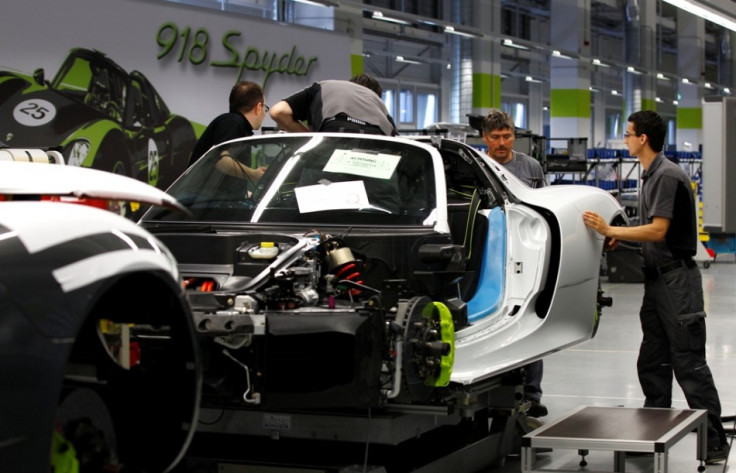Eurozone Recovery Gains on Private Sector Expansion

Eurozone's private sector expanded at its fastest pace in more than two years in August, adding to hopes that the single-currency region has gained momentum after experiencing nominal growth in the second quarter.
The Markit flash eurozone composite output index rose to a 26-month high at 51.7, up from 50.5 in July. Economists expected an index reading of 50.9 for the month.
August was the fifth consecutive month of increase in the index reading. The index has been above the 50-mark, separating expansion from contraction, for two consecutive months.
The flash manufacturing purchasing managers' index (PMI) rose to 51.3, a 26-month high, from 50.3 in July. Meanwhile, the service setcor PMI showed a 24-month high reading of 51.0, up from July's 49.8.
"The euro area's economic recovery gained momentum in August, with manufacturing and service sector companies reporting the strongest pace of expansion for just over two years," Markit Chief Economist Chris Williamson said.
"So far, the third quarter is shaping up to be the best that the euro area has seen in terms of business growth since the spring of 2011. The economic picture from the surveys is therefore coming into line with policymakers' expectations of a modest yet still fragile return to growth."
Germany-Led Growth
Germany, the eurozone's largest economy, led the business activity growth in August with its strong domestic and export demand.
The flash Germany composite output index rose to a seven-month high at 53.4 from 52.1 in July. Manufacturing PMI rose to 52.0 from 50.7. Services PMI lifted to 52.4 from 51.3.
"The survey provides confirmation that Germany's economy is back on a solid footing and likely to remain in expansion through the third quarter of 2013," Markit Economist Tim Moore said.
Moore noted that manufacturing gained the most in August, as a rebound in export orders helped output growth accelerate to its strongest for over two years.
In addition, the service sector also benefitted from favourable market conditions at home and across the euro area, he added.
Question Mark Still Hangs over France's Recovery
The flash France composite index fell to 47.9 in August from 49.1 in July. While the manufacturing PMI was unchanged at 49.7, services PMI slipped to 47.7 from 48.6.
"Although the French PMI is well above the lows seen earlier in the year, August saw a slight steepening in the rate of contraction, notably in services - which points to lacklustre domestic demand," Williamson said.
Markit Economist Jack Kennedy said weakness in activity and employment "was broad-based across the services and manufacturing sectors."
New orders in the private sector continued to fall in August, as the service sector suffered from lower incoming work. Employment also declined in August, extending the private sector job market's contraction to one-and-a-half years.
Sustained Growth Momentum
Eurozone states posted a modest collective economic growth rate of 0.3% in the second quarter, finally escaping from its longest recession on record.
The latest PMI data indicates that the economy is on the path of stabilisation, according to economists at ANZ Research, who added that "the lift in growth momentum may be sustained over coming months."
ANZ forecast limited but positive growth for the eurozone through the second half of 2013. However, they noted that the region is still facing modest upside risks.
"Despite the lift in growth momentum, European growth is forecast to remain below trend and large output gaps through peripheral economies are expected toremain for the foreseeable future. As a result, core inflation is expected to remain low and support the ECB's forward guidance," they said.
© Copyright IBTimes 2025. All rights reserved.






















